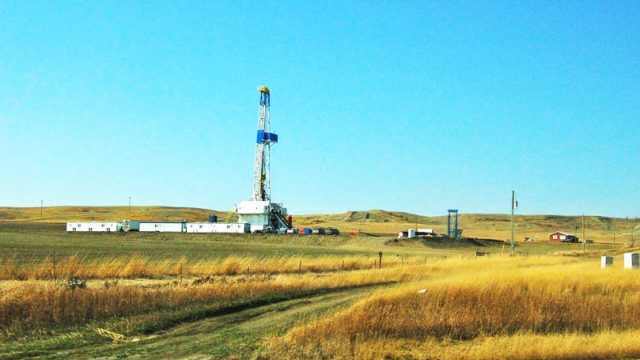Guest Post: The Legislature Must Tame The WAWS Monster

In 2011, the North Dakota Legislature approved the creation of a water project commonly known as WAWS (the official name is Western Area Water Supply Authority). The concept behind WAWS was very well intended: create a rural water system that would provide infrastructure and water to communities in western North Dakota and pay for the system by selling water to the oil industry for fraking purposes.
But, as happens when there is oil money involved, greed and mission creep took over the project, and now the entity created by the legislature has gone into the business of lobbying against private water providers – writing letters to the water commission demanding that permits be denied any time a private business wants to operate in what they consider “their territory”.
Senate Bill 2359 was passed by the North Dakota State Senate by a vote of 33 Yeas to 14 Nays. This bill contain one of the most shocking and dangerous provisions I have ever seen in any legislation which read as follows:
Independent water producers may not sell water for industrial purposes within a ten – mile [16.09 kilometers] radius from any of the twelve approved water depots of the authority unless the producer has facilities located within the ten mile [16.09 kilometers] radius from which the producer is selling water for industrial use before July 1, 2013, under a water permit issued before July 1, 2013 .
Translated, this provision would make it illegal for private industry, that is not already doing business within 10-miles of the state-financed WAWS water depots.
There is no arguing the need for state support when it comes to supplying water to North Dakota residents in areas where reliable water has historically been a problem. That is not at all the issue.
The issue is whether a state-created water authority should be in a position to declare that private enterprise is not allowed to operate in certain parts of our state. This should not be a difficult question, yet, the powers behind WAWS want to have a “10-mile non-compete zone” around each of their current facilities that provide water to the oil industry. They would like to use the power of the state to prevent private enterprise from entering their territory.
In essence, this water authority believes the state of North Dakota should be in the business of creating monopolies to prevent private industry from existing. The term “socialism” gets thrown around generically a lot these days, but this most certain fits the textbook definition of socialism.
What needs to happen?
First, the state should treat this water authority as two separate entities: one, which serves residents and cities in North Dakota, and is supported by state tax dollars; and another which is put on a path to privatization. The state of North Dakota simply should not be in the business of competing with private industry when it comes to a critical resource for the oil industry. There is enough private money in the oil business that the state of North Dakota does not need to be in the industrial water business, and it most certainly should not allow an entity it created to us the power of the state to block private enterprise.
The legislature is looking at several bills dealing with this issue, and should re-prioritize the role of WAWS, and take the needed steps to eliminate the ability for government-backed entities to act in monopolistic and anti-competitive ways.
Allowing WAWS to continue to push its weight around sends the wrong message to the oil industry because it creates uncertainty as to what the State of North Dakota’s role might be in the future when it comes to controlling the inputs for the oil.
There is enough uncertainty for the oil industry created by the federal government, the international monetary system, and the world oil market itself – the State of North Dakota and publicly backed entities created by the state should not add an ounce of uncertainty to that mix.
Passage of this bill, with the language creating zones where private industry is not allowed to operate, would be a very bad precedent. There is no reason for the state of North Dakota to either subsidize the oil industry by financing the water supply, nor is there any reason for the state to be in a position of controlling the means of production in oil industry.
The state should support the water needs of its citizens, but the needs of the oil industry can be taken care of by private industry.
State financing and control is not needed, and may be later viewed as a negative by the industry some day.







